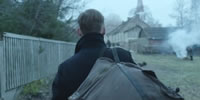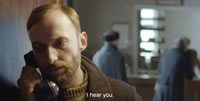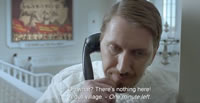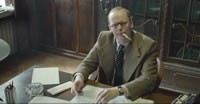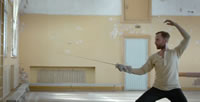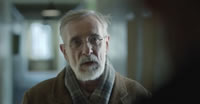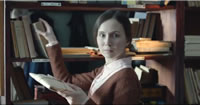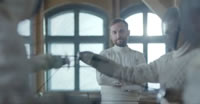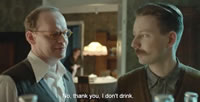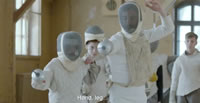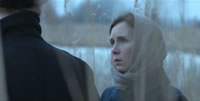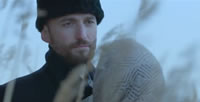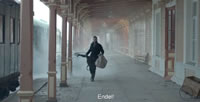The Fencer (2015) [Miekkailija]
Cast includes: Märt Avandi (I Was Here), Kirill Käro (Star), Lembit Ulfsak (Tangerines), Liisa Koppel (Kid Detectives and the Secret of the White Lady), Hendrik Toompere Sr. (The Days That Confused), Ursula Rapasepp (Love is Blind)
Director: Klaus Härö (Letters to Father Jacob, Mother of Mine)
Genre: Drama | Romance | Sports (99 minutes) Estonian and Russian with subtitles
WWII didn’t end well for Estonians. After the German occupation came the Soviet occupation. Estonian men who had been drafted by the Nazis were then declared by Stalin to be “enemies of the state.” In the early 1950s, Endel Nelis arrives by train in Haapsalu, Estonia. We see the little town from his point of view… there’s not much to see… cold and gloom shroud everything. At Secondary School No. 2, the principal reviews Endel’s papers with skepticism… “From Leningrad… you didn’t like it there?” “No, I always preferred smaller places.” He notices fencing on Endel’s papers… “Not really a pursuit for adults,” he comments. Homesick for Leningrad, Endel makes a 3-minute call to his friend Aleksei who tells him, “They came looking for you again.” He warns Endel to stay put, and... “What ever you do, don’t stand out.”
Endel will be responsible for the sports club at the school… a greater challenge than he first thought. On the first snowy day, he arrives to find that the skis he spent hours repairing have disappeared. “We share our equipment with the military base,” says the principal. “How can I run a sports club with no equipment?” Amused by Endel’s frustration, the principal replies, “You have a degree from Leningrad… not me.” Back in the gymnasium, Endel thinks he’s alone when he practices fencing. But Marta sees him and wants to learn. “I can’t teach you. There’s no point in fencing alone.” The young girl’s disappointment touches Endel, and he decides to put a notice on the bulletin board, “Sports Club Fencing on Saturdays.” The turnout is surprisingly large, with kids eager to learn how to thrust and hit. But that’s not what counts… “The most important thing about fencing is a precise sense of distance.” Endel explains, “When I move forward, you move back. When I move back, you move forward.” The class does indeed move forward. And despite the fact that Endel is “not good with children,” they look forward to fencing. In baby steps, they go from no equipment to homemade equipment to secondhand equipment. In the meantime, Endel is developing affection for the children, the community and for one fellow teacher in particular.
Around this time, the principal decides it’s time to go back to more traditional sports… not this “relic of feudal times.” There will be numerous obstacles to the fencing program, which fills a void for many of the children. While the war may be over for most… in Estonia, families are “endlessly waiting for their fathers to come home”… not knowing if they ever will. Inspired by actual events, The Fencer shows us how resilient adults and children helped each other overcome hardship. This beautiful and haunting film was Finland’s Oscar entry for Best Foreign Language Film and a short list finalist. Films about sports and underdogs have become a popular genre, but The Fencer has the added tension of life-and-death in a Soviet-era police state. Endel is tired of war and being on the run... all he wants is to live a normal life. But in life, as in fencing… “The most important thing is a precise sense of distance.” Fencing may bring him too close to the danger he needs to avoid.

3 popped kernels
Hiding from Stalin’s secret police, a fencer takes a job as a teacher in a small Estonian town
Popcorn Profile
Audience: Grown-ups
Gender Style: Neutral
Distribution: Art House
Mood: Sober
Tempo: Cruises Comfortably
Visual Style: Nicely Varnished Realism
Nutshell: Teacher hoping to avoid capture by Soviet police
Language: True to life
Social Significance: Informative & Thought Provoking

